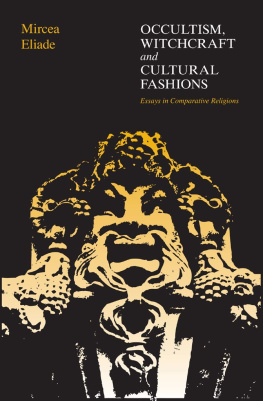Shirley Nicholson - Shamanism
Here you can read online Shirley Nicholson - Shamanism full text of the book (entire story) in english for free. Download pdf and epub, get meaning, cover and reviews about this ebook. year: 2014, publisher: Quest Books, genre: Religion. Description of the work, (preface) as well as reviews are available. Best literature library LitArk.com created for fans of good reading and offers a wide selection of genres:
Romance novel
Science fiction
Adventure
Detective
Science
History
Home and family
Prose
Art
Politics
Computer
Non-fiction
Religion
Business
Children
Humor
Choose a favorite category and find really read worthwhile books. Enjoy immersion in the world of imagination, feel the emotions of the characters or learn something new for yourself, make an fascinating discovery.
- Book:Shamanism
- Author:
- Publisher:Quest Books
- Genre:
- Year:2014
- Rating:3 / 5
- Favourites:Add to favourites
- Your mark:
- 60
- 1
- 2
- 3
- 4
- 5
Shamanism: summary, description and annotation
We offer to read an annotation, description, summary or preface (depends on what the author of the book "Shamanism" wrote himself). If you haven't found the necessary information about the book — write in the comments, we will try to find it.
A powerful collection of essays from authors such as Mircea Eliade, Joan Halifax, Stanley Krippner, Brooke Medicine Eagle, Serge King, and Michael Harner on the mystifying phenomenon of shamanism around the world-what it is, how it works and why.
Shamanism — read online for free the complete book (whole text) full work
Below is the text of the book, divided by pages. System saving the place of the last page read, allows you to conveniently read the book "Shamanism" online for free, without having to search again every time where you left off. Put a bookmark, and you can go to the page where you finished reading at any time.
Font size:
Interval:
Bookmark:

SHAMANISM
Cover design by Ricardo Sasia
The Kwakiutl Transformational Mask is reproduced with permission from the Field Museum of Natural History, Chicago.

SHAMANISM
An Expanded View of Reality
compiled by Shirley Nicholson
A publication supported by
THE KERN FOUNDATION

Wheaton, Illinois  Chennai (Madras), India
Chennai (Madras), India
Learn more about Shirley J. Nicholson and her work at www.questbooks.net
Copyright 1987 by the Theosophical Publishing House
First Quest Edition 1987
Sixth printing
Quest Books
Theosophical Publishing House
PO Box 270
Wheaton, IL 60187-0270
Without limiting the rights under copyright reserved above, no part of this publication may be reproduced, stored in or introduced into a retrieval system, or transmitted, in any form, or by any means (electronic, mechanical, photocopying, recording, or otherwise), without the prior written permission of the publisher of this book.
The scanning, uploading, and distribution of this book via the Internet or via any other means without the permission of the publisher is illegal and punishable by law. Please purchase only authorized electronic editions, and do not participate in or encourage electronic piracy of copyrighted materials.
While the author has made every effort to provide accurate telephone numbers and Internet addresses at the time of publication, neither the publisher nor the author assumes any responsibility for errors or for changes that occur after publication. Further, the publisher does not have any control over and does not assume any responsibility for author or third-party websites or their content.
Library of Congress Cataloging-in-Publication Data
Shamanism.
(A Quest book)
A Quest originalT.p. verso
Includes bibliographies.
1. Shamanism. 2. Spiritual life. I. Nicholson, Shirley J.
BL2370.S5S48 1987 291 85-40405
ISBN 978-0-8356-0617-2
ISBN for electronic edition, e-pub format: 978-0-8356-2164-9
Contents
Foreword |
The Ancient Wisdom in Shamanic Cultures |
Shamanism and Cosmology |
The Presence of Spirits in Magic and Madness |
Crazy Wisdom: The Shaman as Mediator of Realities |
Shamanism: An Archaic and/or Recent Belief System |
The Shaman: Master Healer in the Imaginary Realm |
Dreams and Shamanism |
Shamanism, ESP, and the Paranormal |
Rolling Thunder at Work |
The Tamang Shamanism of Nepal |
Shamanism in the Jewish Tradition |
The Way of the Adventurer |
The Native American Prayer Pipe |
Shamanism, Mind, and No-Self |
The Dreamtime, Mysticism, and Liberation: Shamanism in Australia |
Transformation Process in Shamanism, Alchemy, and Yoga |
Shamanism and Theosophy |
The Shaman Within |
Lineage of the Sun |
Black Elk: Then and Now |
Foreword
The Mind and Soul of the Shaman

JEAN HOUSTON

Why is there so great a renewal of interest in one of the oldest forms of the religious lifethe practice of shamanism? I believe that a good part of its fascination lies in the fact that it is prepolitical, for all religions begin as spiritual experiences which then become politicized and bureaucratized. Shamanism, in both its most ancient and most modern forms, recalls the democratization of the spiritual experience, in which hierarchies are reserved for levels of experience rather than for priests and bishops. Each level and dimension of reality is available to the one who will make the effort to learn and practice the ways and means of the spiritual journey. Thus, in shamanic practice one can have ones spiritual experience and revelation direct and unmediated by structures ordained by church or doctrine. This appeals immensely to those who seek autonomy in the spiritual journey.
And what a journey it is! The shaman perceives a world of total aliveness, in all parts personal, in all parts sentient, in all parts capable of being known and being used. This pan-animism yields to the practicing shaman its powers and principalities, and these in turn can be used for healing, for renewal, and for bringing into the profane world the transformational powers of sacred time and space.
Additionally, the shamans ability for self-orchestration on the continuum of states of consciousness enables him or her to serve as a bridge between ordinary reality and transpersonal realms. So different, however, is the shamans practice of altered states of consciousnesswhether induced by drumming, chanting, fasting, temperature regulation, sensory deprivation, or mind-altering substancesthat some anthropologists such as Michael Harner refer to these states as shamanic states of consciousness (SSC) to distinguish them from the tamer altered states of consciousness (ASC). For indeed the way of the shaman calls for initial steps of radical disintegration and dissociation, as well as procedures for consciously entering into chaos. Living at his edges, standing outside and beyond himself, the shaman experiences ecstasy as a condition of his mastery, although the ordeals and voyages into shadow worlds bring with it a harrowing of the soul that few but the shaman could endure. In the shamanic journey, psyche and cosmos gain access to each other; the shaman becoming the channel for creatures and spirits, for the animates of nature and the designates of gods. The art and discipline needed for so special a relationship are enormous and do much to explain the reverence in which the shaman has been held for millennia.
The papers in this volume cover the field of shamanic practice and belief in as comprehensive a manner as has ever been presented to the general public. From the distant past to the emergent future, and across the boundaries of cultures, the depth culture of the shaman is shown to persist, curiously consistent in both method and metaphor.
The structure of the universe is conceived of in very similar ways by the shamanic consciousness, regardless of where or when the shaman dwells. The universe is thought to have three levelssky, earth, and underworldconnected by a central axis. The shamans knowledge and technique has to do with ways of journeying from one of these regions to another. His knowledge is especially resourceful when it comes to understanding the mystery of the breakthrough in plane; that is, passing through an opening or hole in reality (often designated as tent post or pillar) through which the gods descend to earth and the dead to the subterranean regions, and the soul of the shaman in ecstasy can fly up or down in the course of his journeys to heaven or hell. This axis of the world, known locally but representing the very center of things, is for the shaman the place through which sacred space and time become manifest. This is always the prerogative of shamans in archaic cultures. It is only they, in the words of Mircea Eliade, who know how to make an ascent through the central opening; only they transform a cosmo-theological concept into a concrete mystical experience. In other words, for the community, the central pillar of the house or the upper opening of the tent is a symbolic statement of the availability of local space and time for the entrance of sacred space and time. It is a site that permits one to send prayers and offerings to the Holy Ones. For the shaman, however, it is a mystical itinerary and the beginning place for the great journey.
Next pageFont size:
Interval:
Bookmark:
Similar books «Shamanism»
Look at similar books to Shamanism. We have selected literature similar in name and meaning in the hope of providing readers with more options to find new, interesting, not yet read works.
Discussion, reviews of the book Shamanism and just readers' own opinions. Leave your comments, write what you think about the work, its meaning or the main characters. Specify what exactly you liked and what you didn't like, and why you think so.








